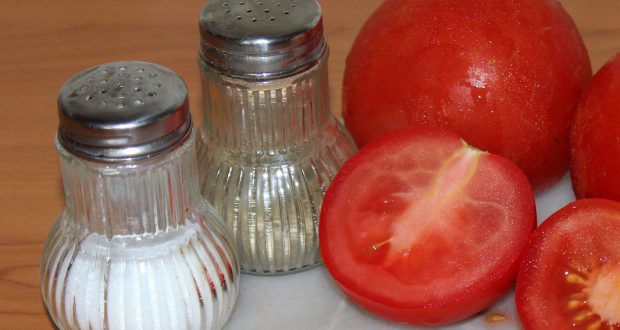By: Guest Author
Published: July 7, 2017
You’ve just had a full meal 45 minutes ago and now you can feel your stomach rumbling again.
Have you ever experienced this feeling of being hungry all the time?
Being constantly hungry can be pretty troublesome, especially if you’re trying hard to lose a few inches off your waistline.
What could be the main culprit of your going back and forth to your pantry or kitchen to grab some food?
The answer is salt. Yes, as tiny as they are, they are responsible for the extra layer added to your stomach.
Let’s look into the issue deeper and see why salt can cause constant hunger and can lead to gain weight.
- Scientists reveals that salt intake initiates hunger, not thirst
You’ve just finished munching a whole bag of potato chips and you instantly feel thirsty afterwards.
Most of us believe that eating salty food could lead to thirst. Contrary to popular belief though, salt leads to hunger and not thirst. This was proven by a study conducted by international group of scientist during a simulated mission to Mars. Cosmonauts who ate more salt weren’t as thirsty and retained more water.
Stay away from salty foods to avoid unnecessary midnight trips to the pantry.
- Excess salt can disrupt a healthy diet
You’re on a mission to lose some weights so you checked out on the best exercise bikes for fitness. And yet, after a few weeks of regular exercise, the numbers on the weighing scales are still not going down.
Blame it on the salt.
Don’t get me wrong though, we need salt in our lives. It makes our food delicious; plus sodium, one of the key ingredients of salt, helps regulate blood pressure. Excessive salt, on the other hand, is not healthy.
People who eat a diet with high salt content are in danger of health problems such as edema, high blood pressure, asthma, osteoporosis and even stomach cancer.
- How salt really works in the body
A lot of studies about the implication of salt on our diet have been conducted. One of which was conducted with mice and it was concluded that species that have more amount of salt in their diet had bigger appetite.
When we eat too much salt, instead of taking in water, our body tries to conserve water in order for the fluid to be flushed out of our system. Water conservation burns more energy, thus the bigger appetite for those that are on a high-salt diet.
- Why it makes you hungry
Why do a bag of potato chip and a few slices of pizza make us hungry?
When a person has more salt intake, his kidney tends to hold onto water and produce urea. Urea is a compound which is formed in the liver and excreted by the kidneys in urine. This process consumes energy which is why you feel hunger afterwards.
- Conclusion
Salt is not our mortal enemy. It’s not something that we should totally stay away from.
Excessive amount of salt, on the other hand, is the culprit of constant hunger and over-eating. Most of the processed foods are packed with too much salt, and that’s something that we should stay away from. Too much salt does not only result to gain weight but can also pose a risk to our health.
How do we minimize our salt intake?
Every time you feel the urge to pop a pizza in the oven or open a bag of potato chips, grab for some healthy snack alternatives instead. Fruits and vegetables are not only filling and nutritious, but can also stop cravings.
If you want to stop unnecessary cravings and over-eating, you now know what ingredient that you should avoid, if not totally eliminate.
Author bio : Jennifer O’Neal is writer who loves to write article on various topics such as health, fitness, exercise etc. She is a lifelong cyclist, enjoying the thrill of an outdoor ride as much as the one on her indoor cycling bikes. She uses exercise bikes for weight loss & fitness.
The views expressed herein this article, written by a guest contributor, do not necessarily represent those of the Red Hot Mamas organization. The content is for informational purposes and should not substitute the advice of your doctor.
 Red Hot Mamas In Charge of Change.
Red Hot Mamas In Charge of Change.




